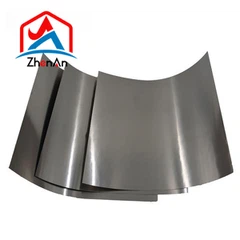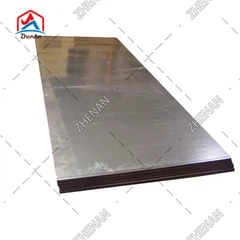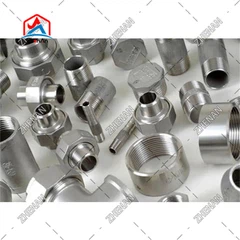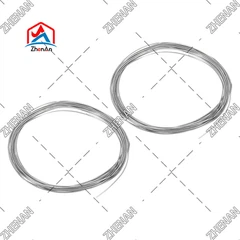
What is the electrical conductivity of zinc wire, and how does it compare to other metals in electrical applications?
Zinc wire is a moderately conductive metal, but its electrical conductivity is significantly lower than that of highly conductive metals like copper, silver, or aluminum. Zinc has an electrical conductivity of approximately 16.6 × 10⁶ Siemens per meter (S/m) or about 17% of the International Annealed Copper Standard (IACS), which is the baseline for measuring metal conductivity. For comparison, copper has a conductivity of ~100% IACS (58.0–59.6 × 10⁶ S/m), while aluminum is around 61% IACS.
Although zinc is not typically chosen as a primary conductor in most electrical wiring or power transmission applications due to its lower conductivity and higher cost-efficiency ratio compared to copper, it still plays important roles in specific electrical and electrochemical uses.
Uses Based on Conductivity:
•Batteries: Zinc is widely used as the anode material in batteries, such as zinc-carbon, alkaline, and zinc-air batteries. In these applications, zinc's role is not primarily as a conductor but as a source of electrons through oxidation. Its moderate conductivity supports internal charge flow within the battery cell.
•Electroplating & Electrochemistry: Zinc wire is used in electroplating baths and electrolytic processes, where its conductivity facilitates the flow of electric current needed to deposit a zinc layer onto other metal surfaces. It acts as an electrode or dissolving anode in these systems.
•Electronics & Sensors: In some low-current or specialty electronic components, zinc may be used where corrosion resistance and moderate conductivity are advantageous. It can also be found in galvanic sensors or corrosion-resistant contacts.
Visit https://www.zhenanmetal.com to learn more about the product. If you would like to know more about the product price or are interested in purchasing, please send an email to info@zaferroalloy.com. We will get back to you as soon as we see your message.









